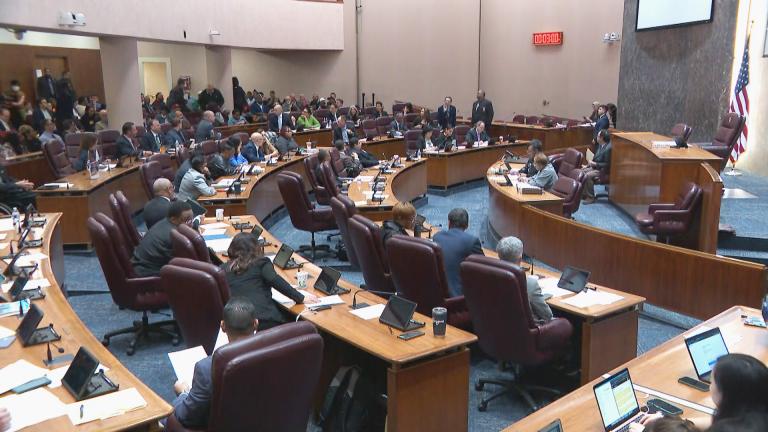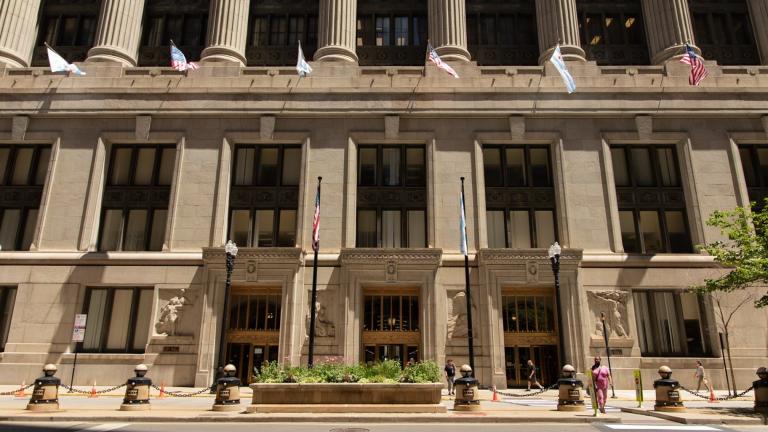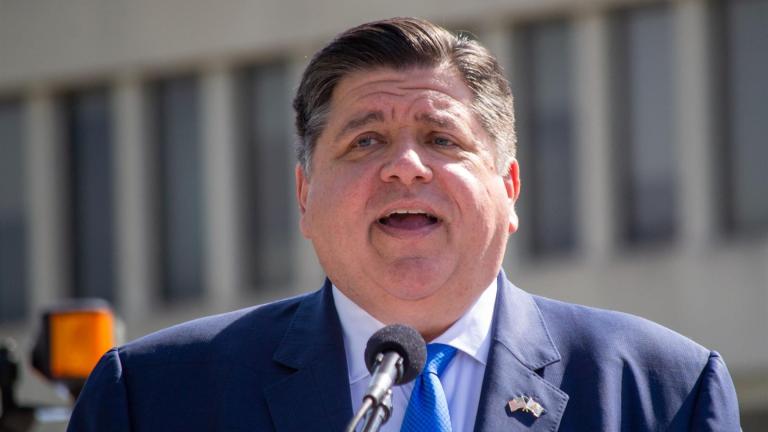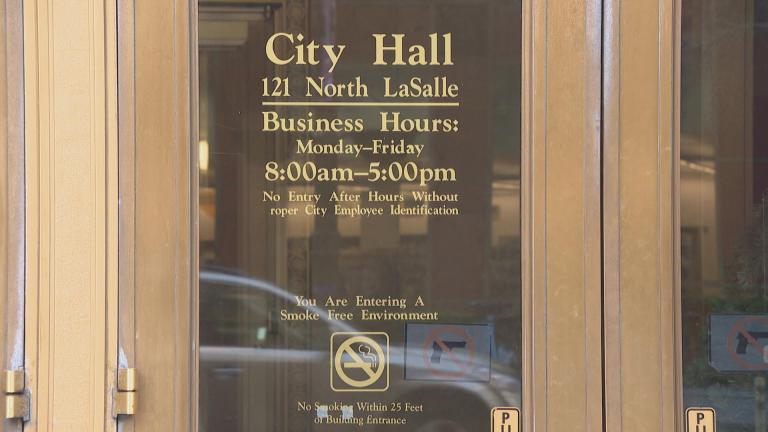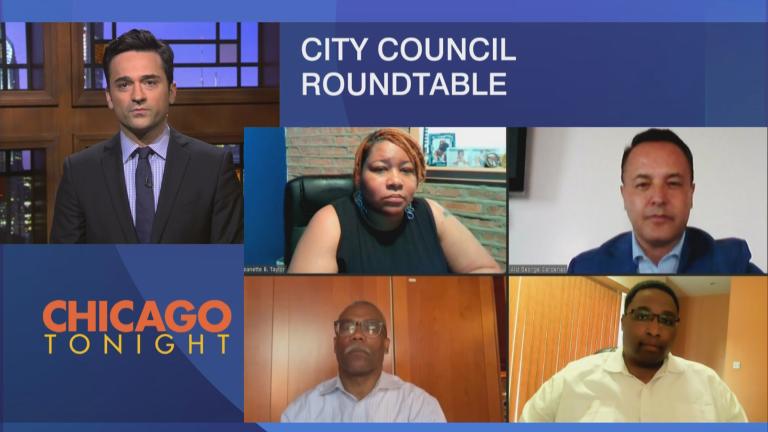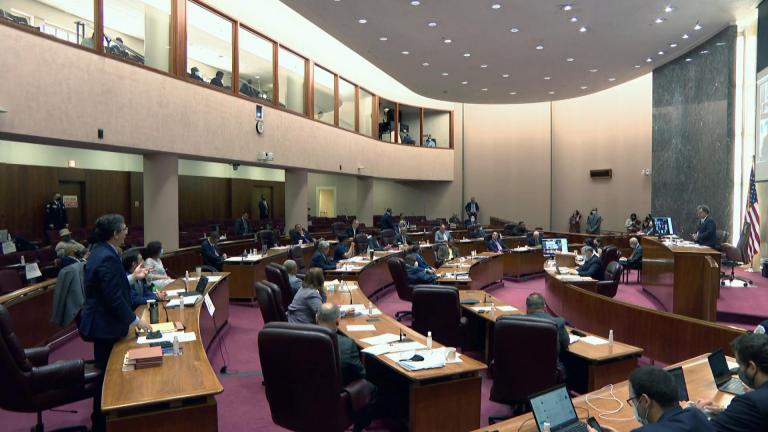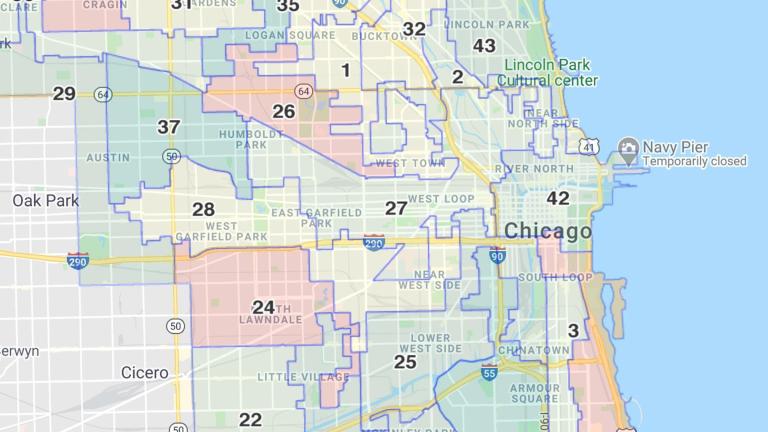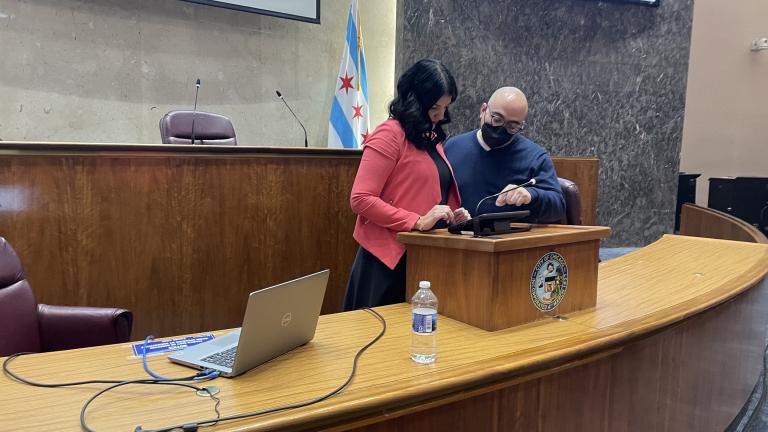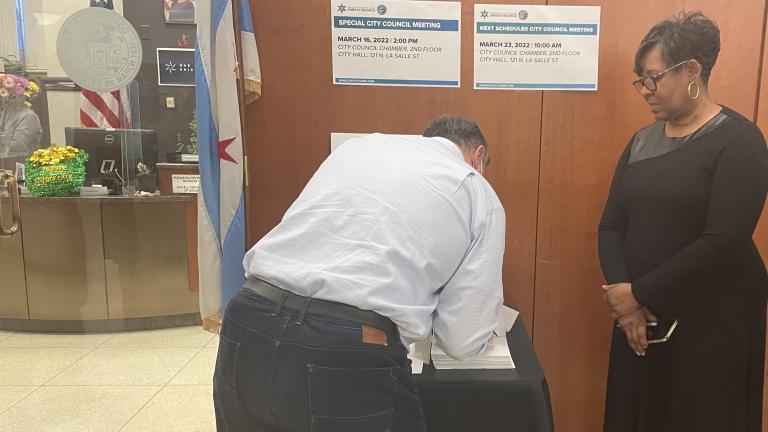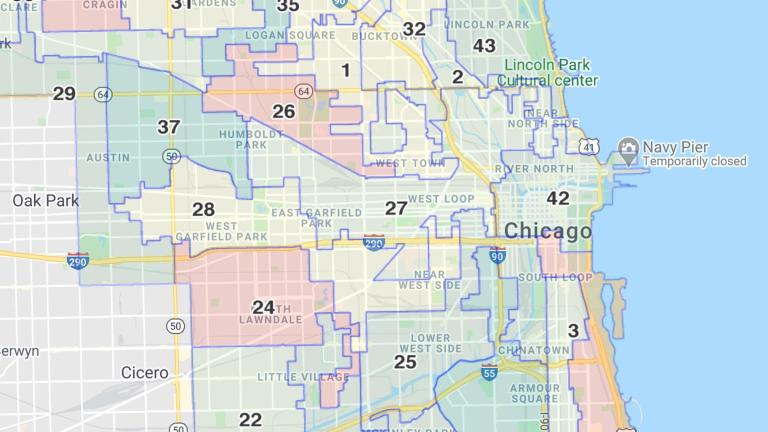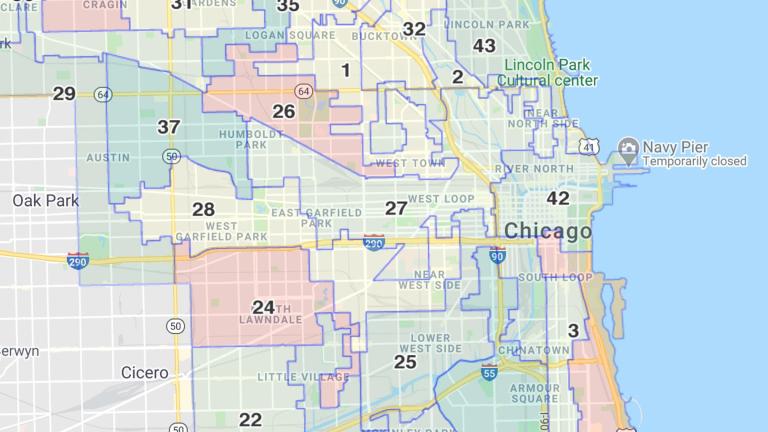The new rules, issued Thursday, came several days after the president of the Better Government Association warned Mayor Brandon Johnson that the administration’s efforts to restrict access to meetings of the City Council were “inequitable and likely illegal.”
Michelle Harris
New restrictions on where members of the public can sit during meetings of the Chicago City Council are “inequitable and likely illegal,” David Greising, president of the Better Government Association, warned Mayor Brandon Johnson.
A spokeswoman for Think Big said Pritzker, a billionaire heir to the Hyatt hotel fortune, is the sole funder of Think Big America. She did not share how much Pritzker has spent on the effort, but that the figure will be “consistent with his giving throughout his entire life.”
City officials are calling this a humanitarian crisis, with stretched resources and few housing options, now that more than 8,000 migrants have arrived.
While the map set to take effect in time for the next round of municipal elections in 2023 has been the subject of more public scrutiny than any other revised map in Chicago’s history, it still allows incumbent alderpeople to pick their own voters and punish their enemies.
If approved at a special City Council meeting set for 11:30 a.m. Monday, the map will be the second major piece of legislation that would have failed to pass without the support of some of the City Council’s most progressive members.
To avert the first ward map referendum since 1992, 41 alderpeople must agree on a map no later than May 19, the deadline for the June 28 primary election ballot to be finalized.
To avert the first ward map referendum since 1992, 41 alderpeople must agree on a map no later than May 19, the deadline for the June 28 primary election ballot to be finalized.
Leaders of the groups that successfully pushed Chicago elected leaders to support a map that redraws the 11th Ward to include a majority of Asian American voters warned members of the City Council that asking voters to decide the boundaries of the city’s 50 wards “fans the flames of racial division.”
The public will get its first glimpse of the $3.5 million effort that began in 2017 to modernize the operations of the Chicago City Council at Wednesday’s meeting — as long as the network is willing, and the cloud does not crash.
Thirty-three alderpeople currently support the ward map backed by the Black Caucus — eight short of the votes needed to avert a referendum in June.
The map crafted by the Chicago Ward Advisory Redistricting Commission failed to win the support of a single alderperson after nearly a year of work.
The session failed to resolve the central issue at the heart of the debate that will determine the balance of political power between Black, Latino and Asian Chicagoans.
The meeting will include three members of the City Council’s Black Caucus, three members of the Latino Caucus and three other members of the City Council. Harris, Mayor Lori Lightfoot’s floor leader, is a member of the Black Caucus.
The likelihood that the June 28 primary election ballot will ask voters to decide what Chicago ward map should look like for the first time in 30 years increased this past week as the acrimony between the Black and Latino caucuses over the map escalated.

